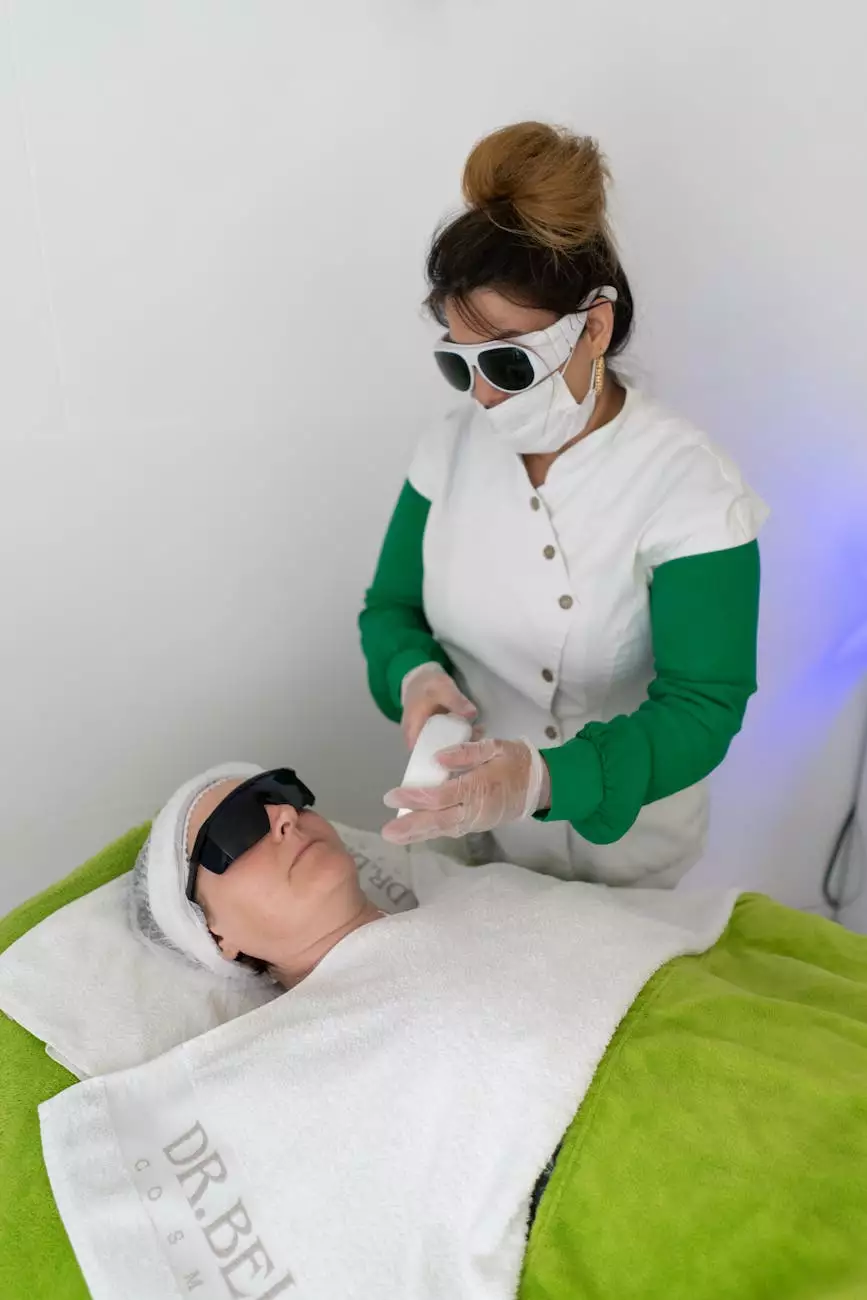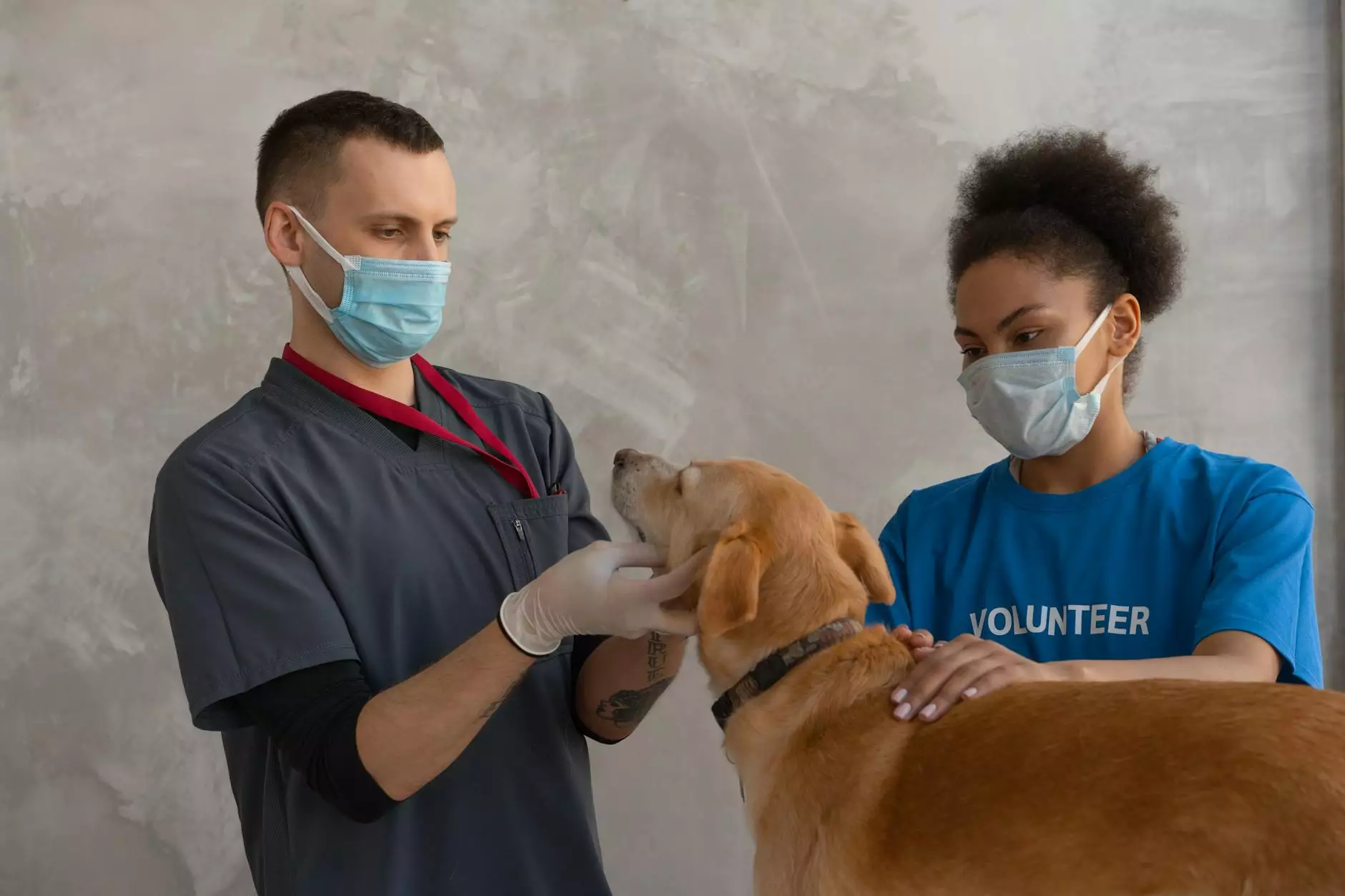Hypothyroidism in Horses - Comprehensive Guide
Resources
As a leading provider of innovative equine health solutions, Lasers4Horses is dedicated to educating horse owners on various health conditions and offering effective treatment options. In this comprehensive guide, we will delve into the topic of hypothyroidism in horses, exploring its causes, symptoms, diagnosis, and management. With our in-depth knowledge and cutting-edge technologies, we aim to empower you with valuable insights and expert advice.
Understanding Hypothyroidism in Horses
Hypothyroidism, also known as underactive thyroid, is a condition that affects the thyroid gland in horses. The thyroid gland plays a crucial role in regulating various bodily functions by producing thyroid hormones. When the gland fails to produce enough of these hormones, the horse may develop hypothyroidism.
Causes of Hypothyroidism in Horses:
- Inadequate iodine intake: Iodine is a vital mineral required for proper synthesis of thyroid hormones. Insufficient iodine in the horse's diet can lead to hypothyroidism.
- Autoimmune disorders: Conditions such as equine autoimmune thyroiditis can cause immune-mediated destruction of thyroid tissue, resulting in hypothyroidism.
- Genetics: Some horses may inherit a predisposition to hypothyroidism, making them more susceptible to developing the condition.
Recognizing the Symptoms
Identifying hypothyroidism in horses can be challenging as the symptoms can vary widely. Several common signs to watch out for include:
- Weight gain or difficulty in maintaining a healthy weight
- Lethargy and decreased energy levels
- Poor coat quality and slow hair regrowth
- Abnormal heat cycles in mares
- Depression or changes in behavior
- Sluggishness and reduced exercise tolerance
If you notice any of these symptoms in your horse, it is crucial to consult a qualified veterinarian to establish an accurate diagnosis.
Diagnosing Hypothyroidism
A proper diagnosis of hypothyroidism involves an assessment of clinical signs, as well as laboratory tests. Some commonly employed diagnostic methods include:
- Physical examination: A thorough examination of the horse's overall health and symptoms may provide initial insights.
- Blood tests: Analysis of thyroid hormone levels in the blood can help confirm the presence of hypothyroidism.
- Thyroid imaging: Imaging techniques like ultrasound can assist in visualizing the thyroid gland and identifying any irregularities.
It is essential to consult a veterinarian experienced in equine endocrinology to ensure accurate diagnosis and appropriate treatment.
Managing Hypothyroidism with Lasers4Horses
At Lasers4Horses, we believe in a multifaceted approach to managing hypothyroidism in horses. With our state-of-the-art laser therapy technologies and expert guidance, we offer comprehensive treatment options designed to address the underlying causes and alleviate symptoms.
Laser Therapy for Hypothyroidism
Laser therapy has shown promising results in managing hypothyroidism by stimulating thyroid function and improving overall glandular health. At Lasers4Horses, we utilize advanced laser systems to deliver targeted light therapy to the thyroid area, helping to promote healing and enhance hormone production.
Our laser treatments are safe, non-invasive, and devoid of side effects, making them an ideal choice for horses of all ages and breeds. We work closely with veterinarians and provide customized laser therapy protocols tailored to your horse's specific needs.
Dietary Recommendations
A balanced diet plays a crucial role in supporting thyroid health in horses. Lasers4Horses collaborates with experienced equine nutritionists to develop personalized dietary recommendations for hypothyroid horses. Our nutrition plans focus on providing optimal levels of essential nutrients like iodine, selenium, and omega-3 fatty acids, while ensuring appropriate caloric intake and maintaining a healthy weight.
Monitoring and Follow-up Care
Regular monitoring of thyroid hormone levels and ongoing follow-up care are integral to effectively managing hypothyroidism in horses. Lasers4Horses offers comprehensive monitoring services, including periodic blood tests and ultrasounds, to track your horse's progress and make necessary adjustments to the treatment plan as needed.
Our team of dedicated equine professionals is committed to your horse's well-being and works closely with you and your veterinarian to ensure the best possible outcomes.
In Conclusion
As a horse owner, understanding hypothyroidism and its management is crucial for the overall health and well-being of your equine companion. With Lasers4Horses, you can trust in our expertise, advanced technologies, and personalized treatment approach to effectively address hypothyroidism in horses.
Contact Lasers4Horses today to learn more about our innovative solutions and take the first step towards providing your horse with the best care.




